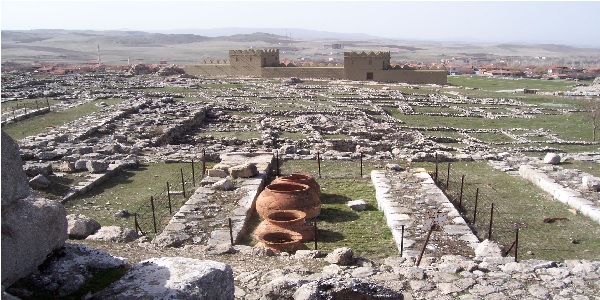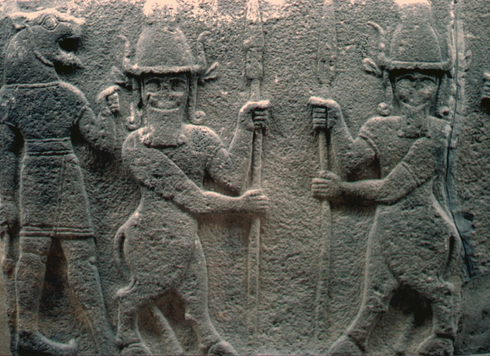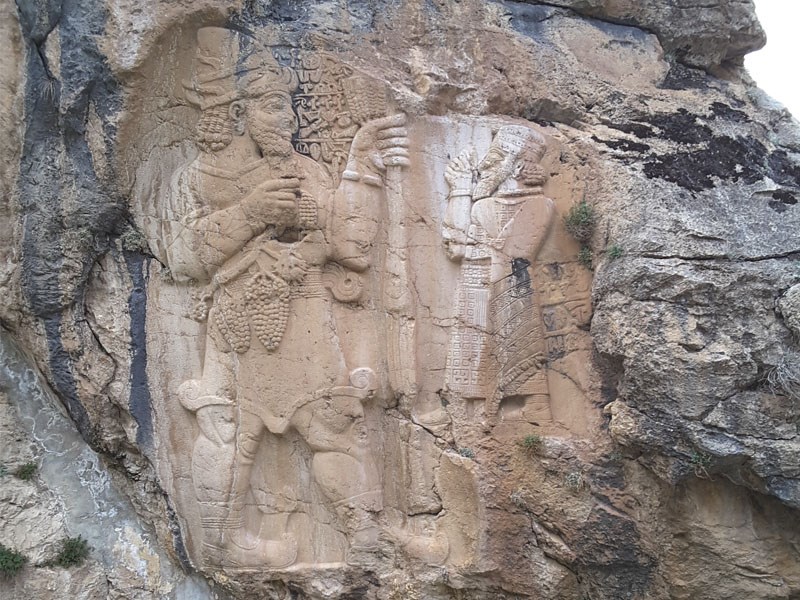The Hittite state was founded in 1650 BC. It grew stronger over time and took its place in history as one of the great empires of the ancient world. The archives found in Hattusa, the capital of the Hittites, have also provided important information about this society.
All of the records found, especially in the capital Hattusa, consist of state archives and almost all of them were extracted from public buildings belonging to the state. Therefore, all archive writings were made by the state. Unfortunately, the fact that there is not much commercial information in these archives has led to a perception that the Hittites did not attach much importance to trade, while increasing curiosity about this issue.
No individual lease contracts, sales documents, or correspondence of letters have been found as in the Assyrian Trade Colonies. Had it not been for the existence of these documents, we would today be talking about the fact that trade did not exist or was not important enough to be recorded.
It is documented that there was a serious record archive in this period. If we accept that trade was monopolized by the state in the Hittites, shouldn’t the archives found be more about trade? Based on this question, we can easily say that trade was not under such a monopoly in the Hittite state with the current finds.

It is also important that Hittite kings secured the merchants with laws. In a trade environment where they would be completely indifferent, it would be meaningless for kings to make laws. The fact that the Hittite word “Happira” means marketplace also points to the existence and importance of trade in daily life. The derivation of this word from the word “Happina”, which means wealth, is also worthy of special attention.
The fact that merchants were under the protection of the Hittite State is evident from the texts of the laws we have:
“If someone kills a merchant, he must pay 100 mina silver and take care of his house. If this happens in Luwiya (Arzawa) or Pala, let him pay 100 mina of silver and restore the goods. If it happens in the land of Hatti, let him bring the said merchant (for burial).”
Killing a merchant was considered a capital offense. Considering that 100 mina of silver was equivalent to about 4000 sheep or 400 cattle, the severity of this penalty is even better understood.
Most interestingly, many of the goods traded in the Hittite state were regulated by law. Commodities were denoted by the šekel, the measure of weight that the Hittites usually used. A Hittite šekel is equal to approximately 12.5 grams. Another measure of weight also mentioned in the laws is the mina. In the Hittites, 60 šekel is equal to one mina, so one mina is about 500 grams. However, these measures of weight did not have the same value everywhere. In Babylonia, for example, a šekel was only 8.3 grams. For this reason, in some cases the written sources specifically indicate which country’s weights were used.

After the conquest of Ugarit by the Hittites, Hittite-Ugaritic trade relations naturally increased. While the Assyrian merchants had previously dominated the Near East trade, in the middle of the second millennium this focus shifted to Ugarit on the eastern Mediterranean coast. The port of Ura was the gateway of the Hittites to the Mediterranean. Therefore, all maritime trade of the Hittites was carried out through Ura.
Trade had increased to such an extent that the merchants from Ura had gained great power in Ugarit. Such a rise in the power of the merchants must have caused discomfort in the kingdom, as we can clearly see in a decree issued by the Hittite King Hattušili III for Ugarit.
According to this text, the merchants from Uraea had purchased a lot of real estate and land in Ugarit, and they also lent money to the people of Ugarit with interest and victimized them. In order to prevent this situation, the Hittite king issued an edict. According to this edict, Ugaritian merchants had the right to stay in Ugarit only during the summer months, i.e. during the trade period. They were prohibited from buying real estate or lending money at interest.

As can be seen, the Hittite King directly controlled international trade.
The Hittite King could also use trade as a means to keep another country under pressure. Such a situation can be seen in a text called the Treaty of Šaušgamuwa. The treaty signed between the Hittite King Tuthali IV and the Amurru king Šaušgamuwa is as follows:
“As the king of Assyria is hostile to my majesty, so shall he be hostile to you. Your merchant shall not go to the land of Assyria! As for his merchant, do not let him into your country, and do not let him pass through your country! But if he comes to your country, seize him and send him to my majesty”.
As it is clearly seen in the text, the Hittite King was imposing a trade embargo on the Assyrian state and trying to weaken it with this embargo. This situation can also be considered as the world’s first embargo.
The establishment of the Hittite state and its administration centered in Hattusa may be the reason for the disappearance of the colonies and the withdrawal of Assyrian merchants from Anatolia may be the determination of the Hittite state to keep trade in one hand. As Prof. Dr. Ali Dinçol states, “Hittite kings probably did not allow foreign merchants to trade in their territory”.
As we have already mentioned, the Hittites used silver shekels instead of money. Especially the bans imposed on the merchants of Ura because the people of Ugarit borrowed with interest are read in the archives. This victimization of the people was tried to be prevented by laws. By regulating the trade of the Uraite merchants, the victimization of the people was eliminated.
It was a decision taken due to the fact that the Uraite merchants went to their own cities in the winter because these merchants, who lent money with interest, confiscated their properties in return for the debt they lent to the people of Ugarit. Even though the property was guaranteed by law in Ugarit, the person who could not pay his debt had to enter the service of the merchant and pay his debt. Undoubtedly, the laws tried to prevent local property from changing hands.

Let a ‘prisoner’ perform the luzzi and let no one trade with a ‘prisoner’, let no one buy his son, his crops, his vineyard. [If [anyone] trades with a ‘prisoner’ (for himself), then [he shall] give up that trade: the ‘prisoner’ shall then take back what he has put into the trade.]
According to the law in this article: Prisoners were required to engage in agriculture and were forbidden to engage in trade. If any person living in the Hittite geography traded with the prisoner, the law demanded that the products traded be taken back. This law also prohibited the sale and purchase of land belonging to the prisoner by other people. The state prevented some of its citizens from leaving the agricultural sector and tried to prevent a decline in agricultural production.
The law also stipulates that agricultural land cannot be bought and sold in exchange for debts owed by individuals. It should not be overlooked that these rules are for the continuity of agriculture.
As a result, while there was a trade dependent on the king in the Hittites, there were also free traders. The reason why there are no records of free traders is that they are not mentioned much in the state records. Of course, it should not be forgotten that the reason for this situation may be the documents written on wood. It does not seem possible for wooden documents to have survived to the present day without deterioration due to the organic material. It should also be noted that trade was protected by laws and used as an element of pressure when necessary.
Source: Alpaslan, M. 2003 “Hititler Çağında Anadolu ve Çevresinde Ticaret” İstanbul Üniversitesi Tarih Araştırma Merkezi, “Globus” Dünya Yayınevi, İSTANBUL




